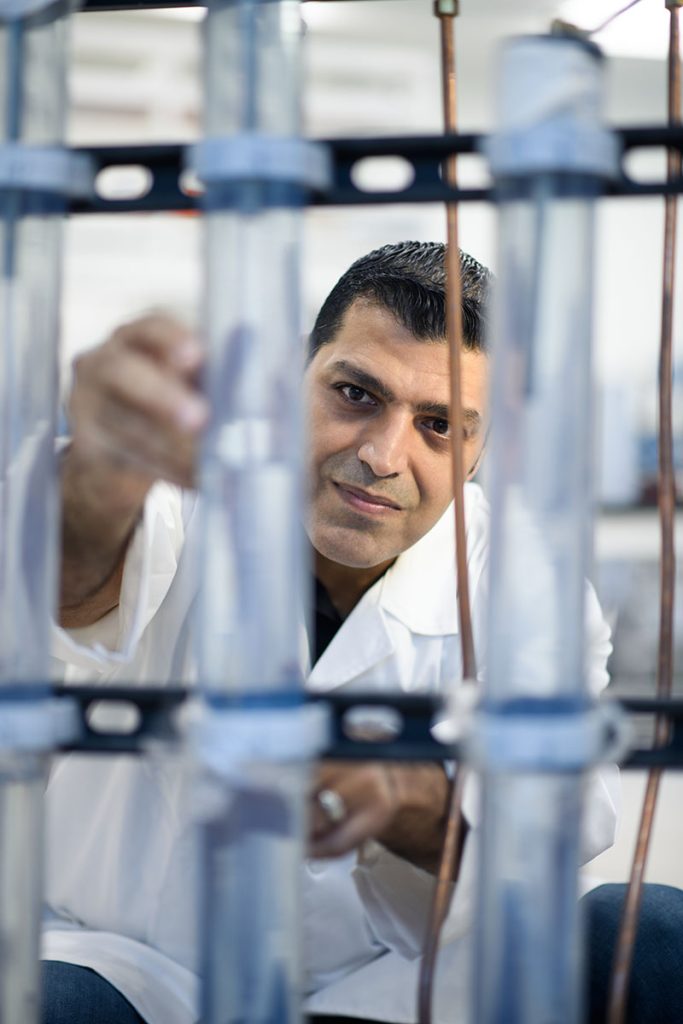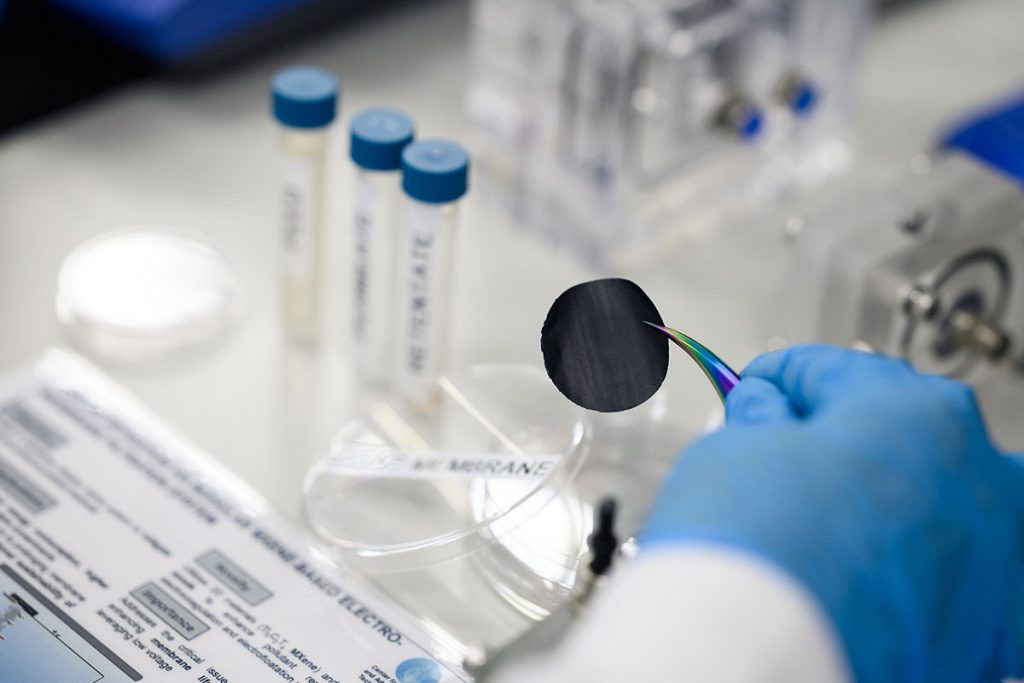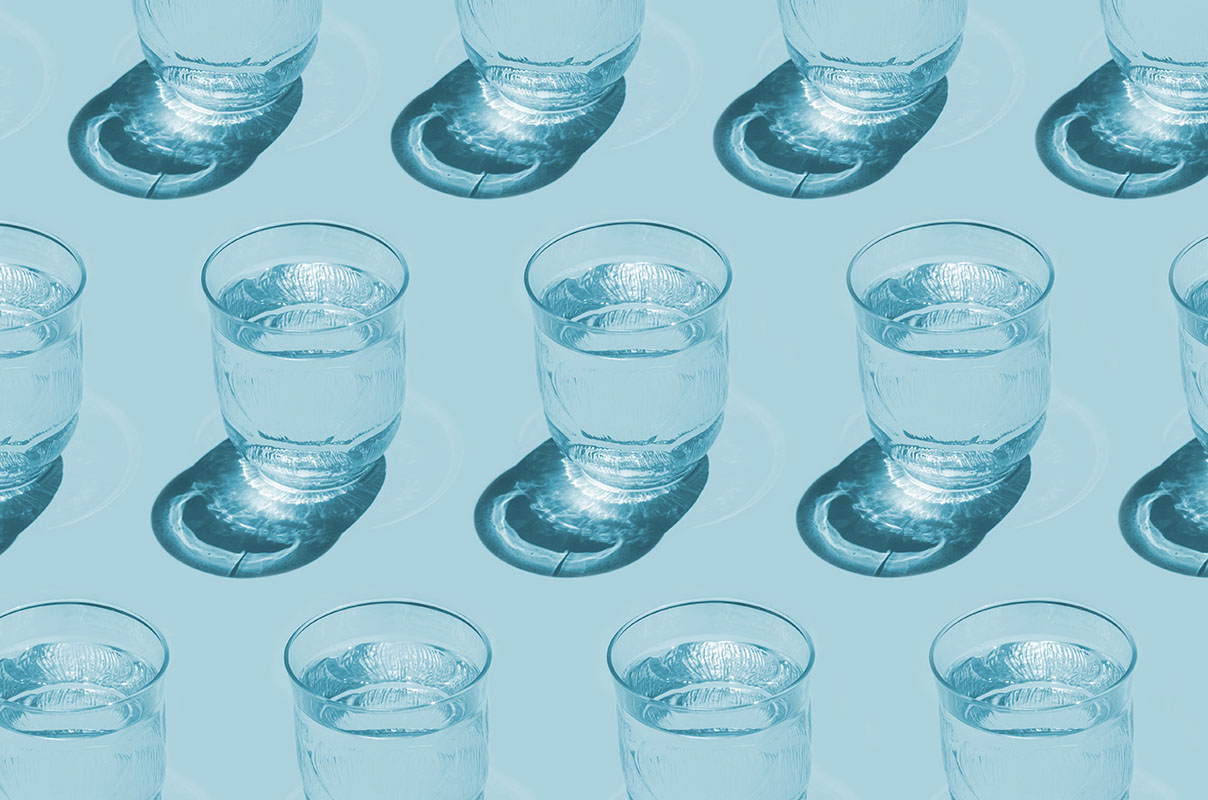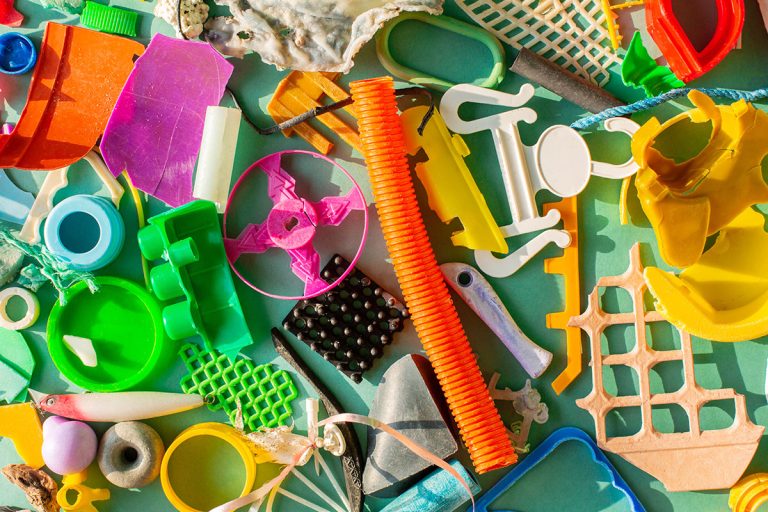Innovative ways to make water resources last
Through key collaborative efforts and innovative research, Khalifa University endeavors to offer sustainable water solutions and establish itself as a global leader in desalination technologies.
Across the world, water security and scarcity are of increasing concern, particularly in arid regions such as the United Arab Emirates. With the UAE government committing to ambitious plans to secure sustainable and effective water management, Khalifa University aims to demonstrate viable sustainable water strategies and cement its position as a world leader in membrane and water technology research.
“With rapid population growth, urbanization, and industrial development, the demand for water is increasing, placing immense pressure on existing resources,” says Shadi Hasan, director of KU’s Centre for Membranes and Advanced Water Technology (CMAT). “The UAE, like many countries in the Middle East, faces serious challenges related to water use.”
“Through practical partnerships and knowledge exchange initiatives, we can share best practices and advance our ideas through to real-world solutions more quickly.”
Shadi Hasan
Such issues include limited freshwater resources, high consumption rates, reliance on desalination for potable water, inefficient water management practices, and environmental degradation due to water pollution and depletion.

“These challenges are compounded by climate change, which impacts the availability of water resources,” adds Hasan. “KU recognizes the urgency of developing sustainable water solutions to ensure water security for future generations.”
Collaborating to advance ideas through to real-world solutions
“Our main objectives at CMAT include enhancing water efficiency, promoting water conservation and reuse, and developing sustainable desalination technologies,” says Hasan. “We also work to protect water quality, and foster interdisciplinary collaborations to resolve complex water issues.”
“By combining EAD’s regulatory expertise and environmental stewardship with CMAT’s cutting-edge research in water reuse and desalination, we are pioneering innovative solutions that ensure sustainable water management for the UAE.”
Mohamed Dawoud
Researchers at CMAT are developing innovative techniques and tools for water management and reuse, and fostering strategic partnerships with industry and several UAE governmental agencies to further their research and development. Current projects involve partnering with the Abu Dhabi Department of Energy (DoE), Ministry of Interior (MoI), and the Environment Agency (EAD), in addition to the Dubai Water and Electricity Authority (DEWA), among others.
“Through these practical partnerships and knowledge exchange initiatives, we can share best practices and advance our ideas through to real-world solutions more quickly,” says Hasan.
Mohamed Dawoud, Senior Water Advisor at EAD, is confident the partnership with Khalifa University not only enhances the agency’s ability to conserve precious and scarce water resources, but also strengthens the resilience of the UAE’s ecosystems and supports the nation’s long-term environmental goals.
“By combining EAD’s regulatory expertise and environmental stewardship with CMAT’s cutting-edge research in water reuse and desalination, we are pioneering innovative solutions that ensure sustainable water management for the UAE,” Dawoud says.
Many CMAT projects have secured external funding through government grant schemes and industry collaborations. These projects cover a wide range of themes, from developing sustainable desalination technologies and advanced wastewater treatment solutions to resource recovery from waste brine and water quality monitoring.
Eco-friendly and sustainable options for membrane technologies
CMAT teams are currently working on improving membrane technologies for desalination and wastewater treatment, experimenting with new materials such as graphene and MXenes. These 2D atomically thin layered materials are of particular interest for purification membranes because they can separate pollutants and salts from water.
“We are also exploring eco-friendly and sustainable options for membrane technologies, including a project developing biopolymer-based membranes for desalination pretreatment,” Hasan says.

Another interesting project lies in the integration of mangroves within the membrane matrix offering an opportunity to filter out contaminants such as heavy metals. “We are also investing in the development of efficient solar-powered desalination methods including solar photothermal-based membrane distillation systems,” adds Hasan.
As a byproduct of desalination and wastewater treatment processes, it is also possible to harvest valuable compounds and metals from the water. For example, one CMAT project is exploring how to recover lithium from desalination brines using 3D printed adsorption modules. The center also prioritizes extracting resources from brine, developing intelligent water monitoring systems, employing computational fluid dynamics and thermal desalination techniques, and investigating water microbiology.
A sustainable future ahead
With numerous research projects and initiatives in place , KU is looking ahead to further success in driving sustainable water solutions. “Over the next five years, we will expand our research portfolio, deepen our collaborations with industry and government partners, and enhance our impact on water sustainability,” Hasan says. “We will also focus on technology commercialization and scaling up our solutions for widespread implementation, ensuring that our research translates into real-world impact.”




